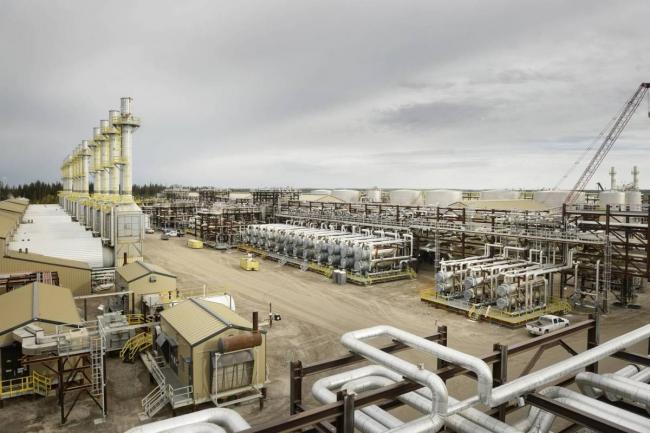Articles Menu

But some of these same groups have turned the tables on the industry with a new report showing that foreign-controlled operational profit from the Canadian oilsands nearly doubled from 2012 to 2016 to 58.4 percent.
In "Who Benefits? An Investigation of Foreign Ownership in the Oil Sands", Environmental Defence, Équiterre, and Stand.earth maintain that 70 percent of oilsands production is owned by foreign companies and shareholders.
Tzeporah Berman, international program director of Stand.earth, said in an online news conference today that the data was culled from Statistics Canada, oil companies' annual and quarterly reports, and Bloomberg.
"The majority of profits from the industry are leaving the country," Berman said, referring to the first three quarters of 2019.
She noted that Canada is the fourth-largest oil producer in the world.
The recent fall in international oil prices—and Western Canadian Select, in particular—has led to calls in Alberta and elsewhere for a federal government bailout.
Those demands intensified after energy giant Cenovus reported a $1.8-billion quarterly loss on April 29, down from a $110-million profit in the same quarter of 2019.
Berman emphasized the big five oilsands producers—Suncor, CNRL, Cenovus, Imperial Oil, and Husky Energy—are all majority foreign-owned, controlling 60 percent of bitumen production.
"Premier Kenney has used his bully pulpit to attack Canadians that are concerned about the climate and the toxic mess being left behind by the oil and gas industry of somehow being unpatriotic," she said. "This research shows clearly that the majority of the revenues from the oilsands are going to foreign investors while Canadians are left paying for the cleanup.
"The government of Alberta should stop wasting time and money on war rooms and propping up oil companies like Suncor and CNRL who claim to be Canadian but are sucking this country dry."
This chart from the environmental groups' report identifies the extent of Canadian ownership and daily production of 14 oilsands producers."WHO BENEFITS? AN INVESTIGATION OF FOREIGN OWNERSHIP IN THE OIL SANDS"
While 10 of the 14 publicly traded oilsands companies have Canadian headquarters, only two of them—Athabasca Oil Corporation and Pengrowth Energy—are majority owned by Canadians.
They account for just 1.5 percent of overall production, according to Berman.
More than 52 percent of "oilsands production" is owned by American shareholders, which is more than twice the level of Canadian ownership, she added. Another 5.2 percent of production is owned by Chinese state-owned companies, according to the report.
'When it comes to stimulus, it doesn't make sense to shovel Canadian tax dollars to U.S. shareholders," Berman insisted.
Dale Marshall, national program director of Environmental Defence, said over Zoom that while more industry profits are flowing out of Canada, social costs are increasingly carried by taxpayers and residents.
According to him, more than 50,000 jobs have been lost in the oil and gas sector, adding that companies were shedding employment before the pandemic, thanks to mechanization.
Moreover, the environmental groups estimate that reclamation of the oilsands, oil and gas wells, and pipelines in Alberta will cost about $260 billion and take as long as 3,000 years to complete.
"Despite increased production since 2000, royalties being collected by governments have actually dropped by 60 percent," Marshall said.
[Top photo: The Christina Lake oilsands facility south of Fort McMurray is owned by one of the big five, Cenovus, which all are majority foreign-owned. CENOVUS]